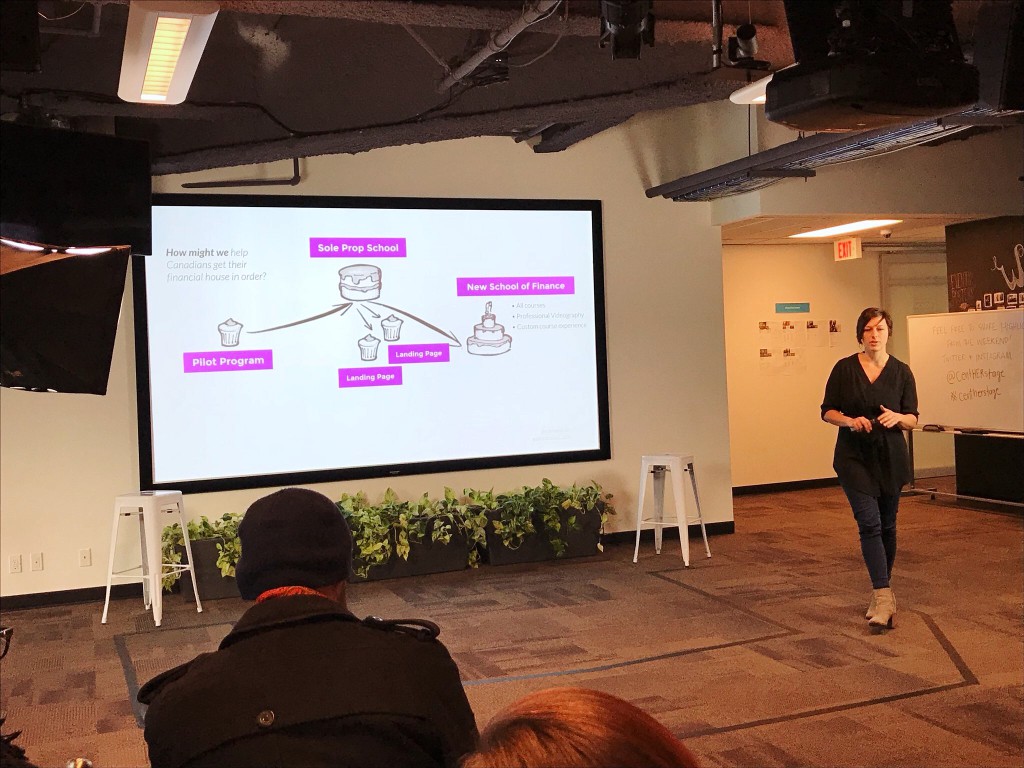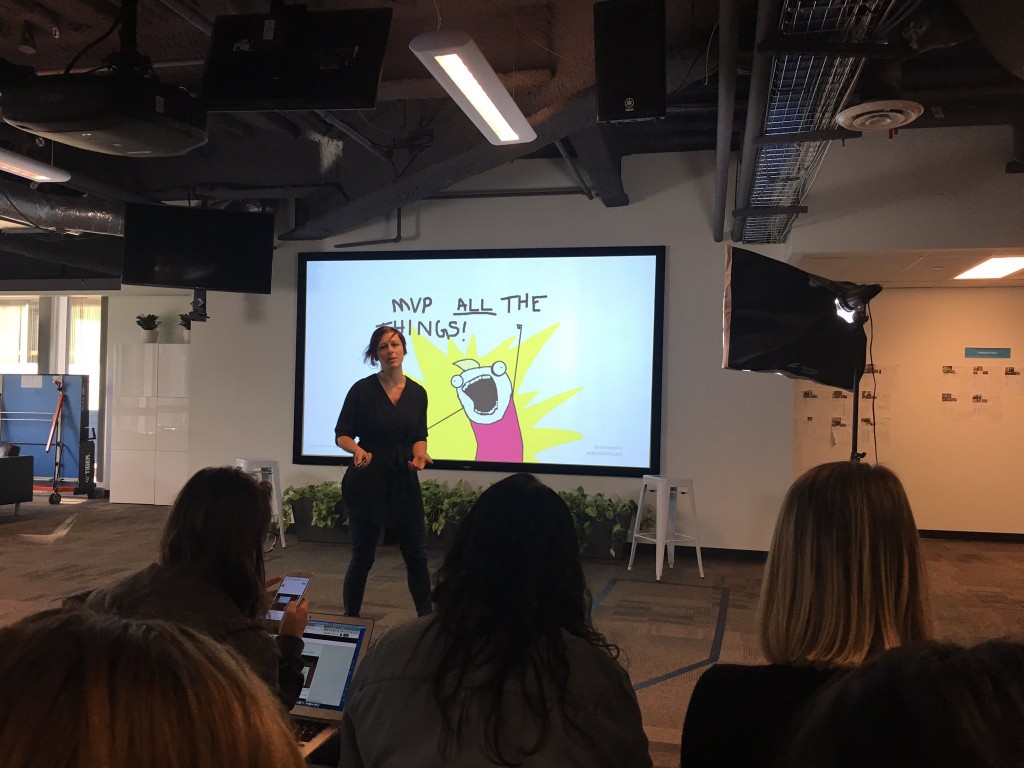
I work with tons of people who are in the process of launching websites, online courses, and marketing campaigns, and consistently without fail, the one thing that trips everybody up?
They try to go way, way, WAY too big.
Like MAGNUM OPUS big.
- They want a website that has all the bells and whistles: sales pages, complex sales funnels, automation and integrations… before they even know what their product/service is, or even who their client is.
- They think they need to have an epic, polished, perfect, all-the-bells-and-whistles gigantic online signature course that tries to teach everything they’ve ever learned (even I’m guilty of this one!).
- They think creating their first online course is going to replace their client income, creating a new business model overnight.
- They expect their brand new business to sell 20x $2,000 coaching programs when they have a list/audience of zero. (an avg 1–2% conversion rate on a list of zero = $0)
- They want to build their own Marie-Forleo-style-“B-school” in a few months (without any experience blogging, list-building, recording videos, presenting, teaching, etc).
I get it.
There’s always so much focus on BIG. Going big. Dreaming big. Bigger and better, “build your 6-figure business”, “grow your team,” etc.
The dazzling lights and 6-figure promises blind people to the work (and time, energy, experience) it really takes to make it happen. If you don’t break up the big dream/goal into an achievable plan, and aren’t aware all of the steps in between, it’s easy to get fooled into think you can pull of a 2, or 5-year idea in a few months.
I know this because I see it all the time, over and over again. Failed, delayed, stressful launches, and launches that are completely out of touch with what customers really want.
You can’t expect to build your idea alone, in secret, hoping to dazzle customers with a perfectly beautiful and polished digital product without getting real customer feedback.
I am politely giving the middle finger to BIG.
Bigger is not better. More is not better.
To clarify, I have nothing against big dreams. Big dreams are important.
The problem is that people get so focused the big vision that they want so bad, they can’t see the first step. Or they’re afraid to take the first step.
They’ve built up the idea so big and perfectly in their head, that they:
- Become paralyzed by inaction (or perfection)
- Don’t have the resources, bandwidth or capacity to pull it off, so it gets delay until “someday”
- Spend a ton of money/time building something that doesn’t get any traction, because it’s trying to do way too much (not solving a specific enough problem)
Well perfectionism is a form of procrastination.
And “someday” has cobwebs on it.
And people need small wins, not everything but the kitchen sink.
This was the case for me with one big client project several years ago. The client paid me a good chunk of money for a branding, design, and custom e-commerce development project. We spent even more money and time on outsourced development customizations for the shop. We had a beautiful brand, website, and fully-featured highly-customized online shop. It had all the bells and whistles.
When it was time to launch… nothing.
The truth is, the product simply wasn’t something the market was asking for, at least not in the format they’d envisioned.
OUCH.
I hated the idea that my client had paid me all that money, knowing they would probably never recoup that cost through their product sales. All that outsourced fancy customization… for an idea that wasn’t really solving a real problem.
It SUCKED, and because I take things to heart, this experience transformed the way I now approach projects.
I started learning about Agile, Lean Startup, Learning Launches, and MVPs, and realized that there’s a better way.

And so, the case for starting small.
Now, when my clients come to me with their gigantic ideas, I say: “That’s lovely and wonderful… for 2 years from now. But what’s our very first tiny step? What can we get you achieving in the next quarter? How can we test this idea before you take out a loan, or remortgage your house?”
I find ways to help them find small wins and create momentum (while also bringing in some cash quickly). If we find that an idea doesn’t get traction, we can shift gears without having to flip the table and start from scratch.
I help them launch their idea*(beta).
Often starting small can be as simple as setting up a landing page and buying some ads, or even better, starting with some customer interviews!
Truly successful products + services are co-created with customers/clients.
The only way to do that, is to get your stuff in front of people sooner than later. To iterate with and learn from your customers/clients. Now, not next year. Think rougher, smaller, simpler. A prototype-first approach.
Thinking prototype-first has completely changed the way I work with clients. It has led to much more fruitful projects, longer term relationships, and crises averted.
While I may feel like a bit of dream-killer or a bubble-burster, I know that I’ve got my clients back. I’m not going to sell someone a gigantic web project when I know they simply need a landing page and some customer research assignments.
Progress is contagious, and an imperfect launch is waaaay better than a perfect launch that simply never ships.
Some learning can only happen by doing.
SO, what SMALL THING will you do next?
I’m launching an online bootcamp I’ve been working on called Run Your Learning Launch that I’ve been developing with Stacey Howe-Lott (an awesome instructional designer). We help people launch their very first course idea IN BETA. Curious? You can watch the very first group call we did for our beta. (Yep, a beta course about how to run a beta course!)



Leave a Reply